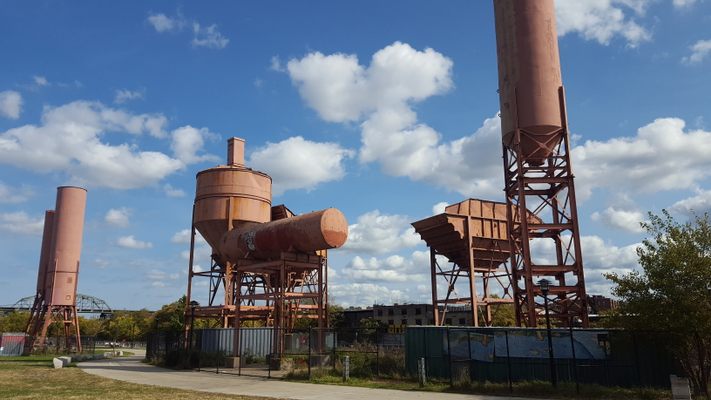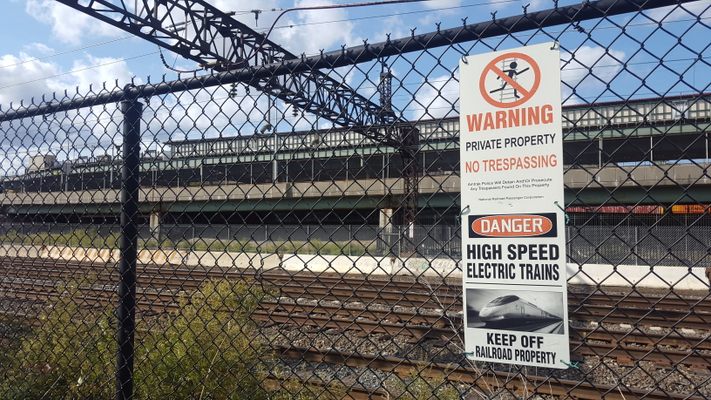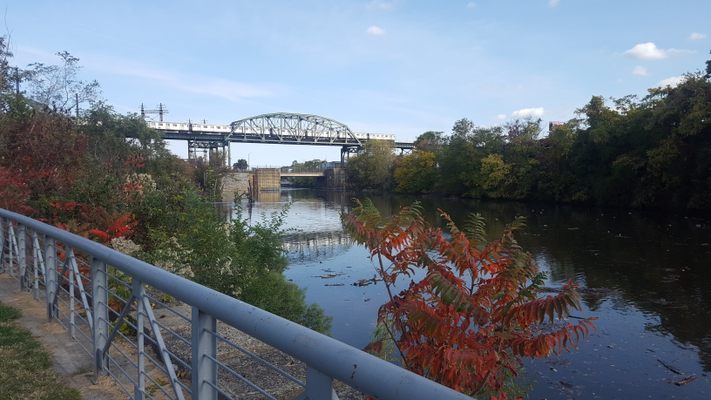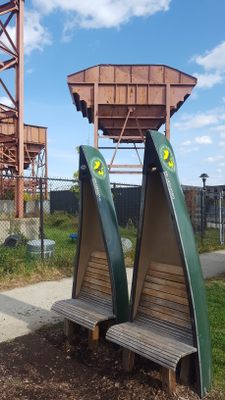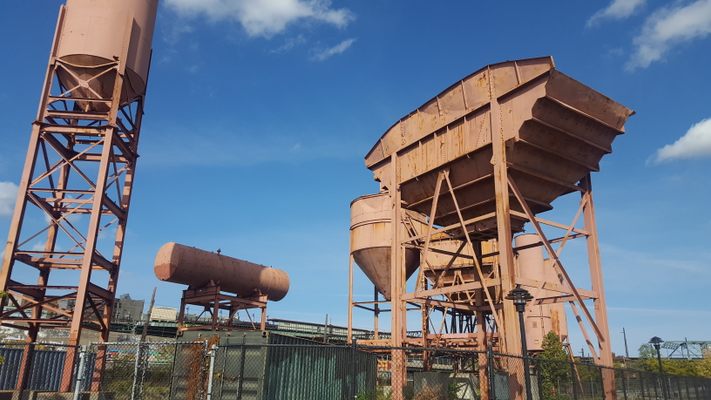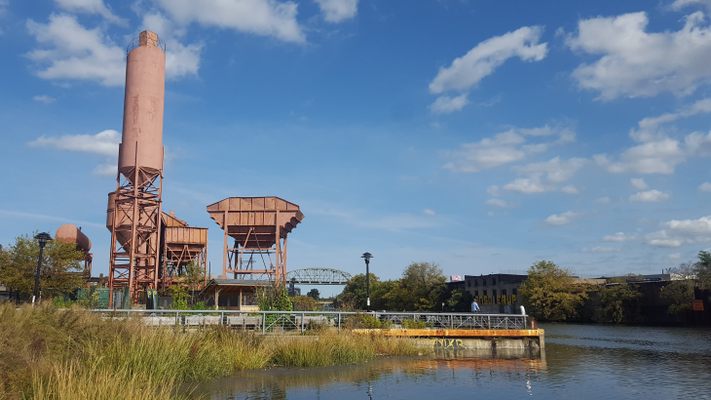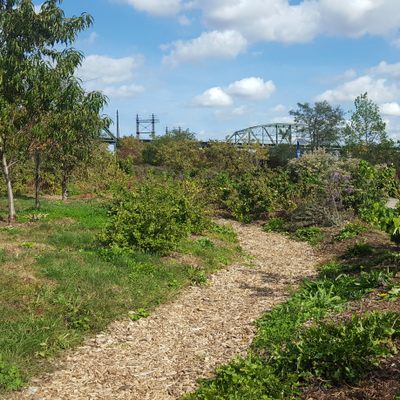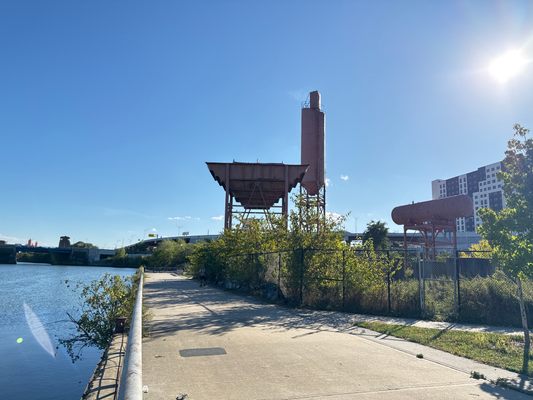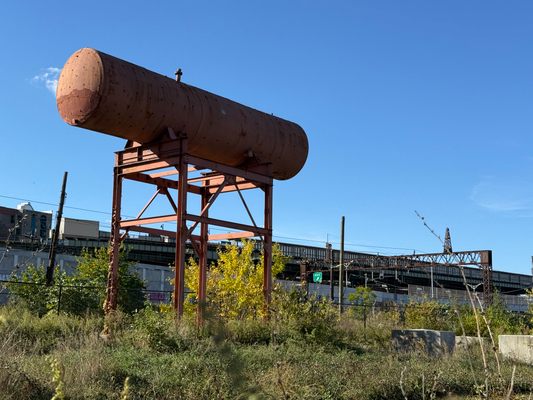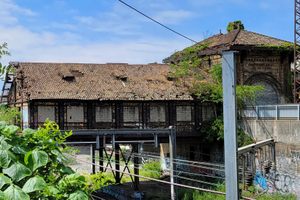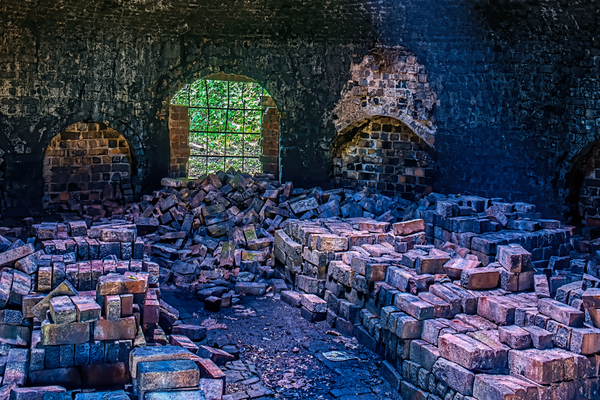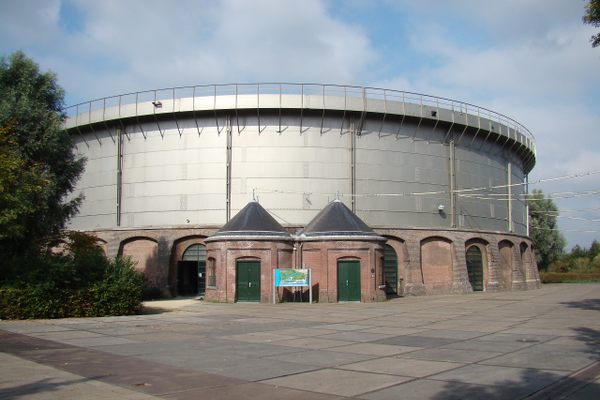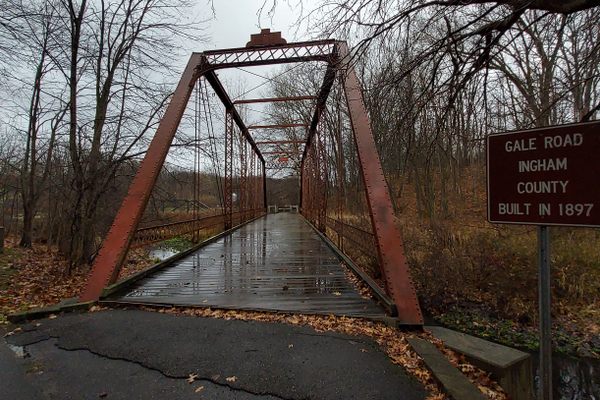About
This New York City park is named for its dominant feature: massive storage silos and hoppers that were once part of a batch-mix concrete plant that operated from the late-1940s until 1987. At that time, Transit-Mix Concrete Corporation became insolvent, after the owner was indicted on racketeering charges.
Community, social justice, and environmental groups urged the city to acquire the site, and the property was put under the jurisdiction of the Department of Parks and Recreation in 2000. The environmental clean-up, design, and construction of the park took around nine years. Most of the roughly $10 million in costs went towards removing 32,000 tons of soil contaminated with petrochemicals.
The preserved concrete plant is reminiscent of the architectural follies sometimes constructed during the 18th-century across European landscapes. The garages and other buildings around the plant were torn down. The remaining structures are painted a uniform dull orange and are fenced off to prevent climbing and graffiti.
In addition to the remnants of the concrete plant, the park contains a riverfront promenade with shade structure, a kayak/canoe launch, lawns, sitting areas, native tidal wetlands plantings, and a garden of edible and medicinal plants and herbs.
The more than seven-acre Concrete Plant Park is a significant node on the Bronx River Greenway. There are gaps in the 23-mile route but when complete, the greenway will shadow the tributary from the Westchester County border to the East River.
The greenway passes through Bronx Park, home to the country's oldest urban zoo and a 250-acre botanical garden. The farther south one travels, the more industry one encounters. Concrete Plant Park faces the rear of a self-storage facility and a shop used by a heavy construction contractor.
To focus on the industrial context, however, is to miss what was accomplished here. Concrete Plant Park is in one of the most impoverished congressional districts in the United States. Its construction is a triumph of community organizing, along with federal and municipal support for open space in an area underserved by public parks.
Related Tags
Know Before You Go
There are marked entrances to Concrete Plant Park from both Westchester Avenue and Bruckner Boulevard. The Whitlock Avenue station on the 6 subway line is located just south of Westchester Avenue. Exit at the front of the platform if traveling by subway towards Pelham Bay Park.
Community Contributors
Added By
Published
November 27, 2020
